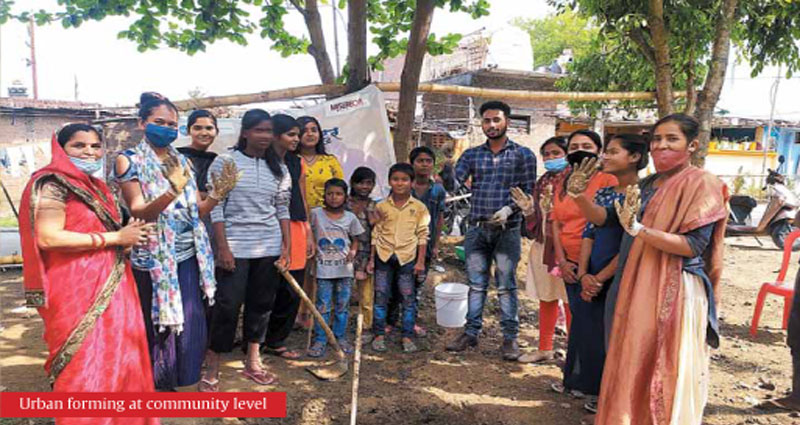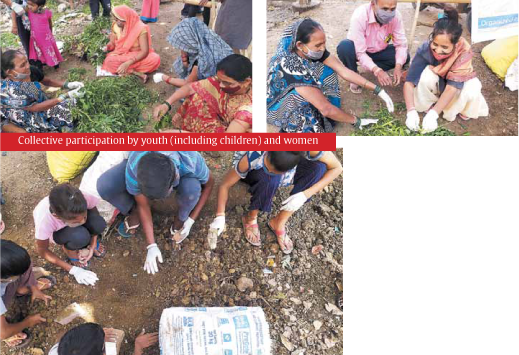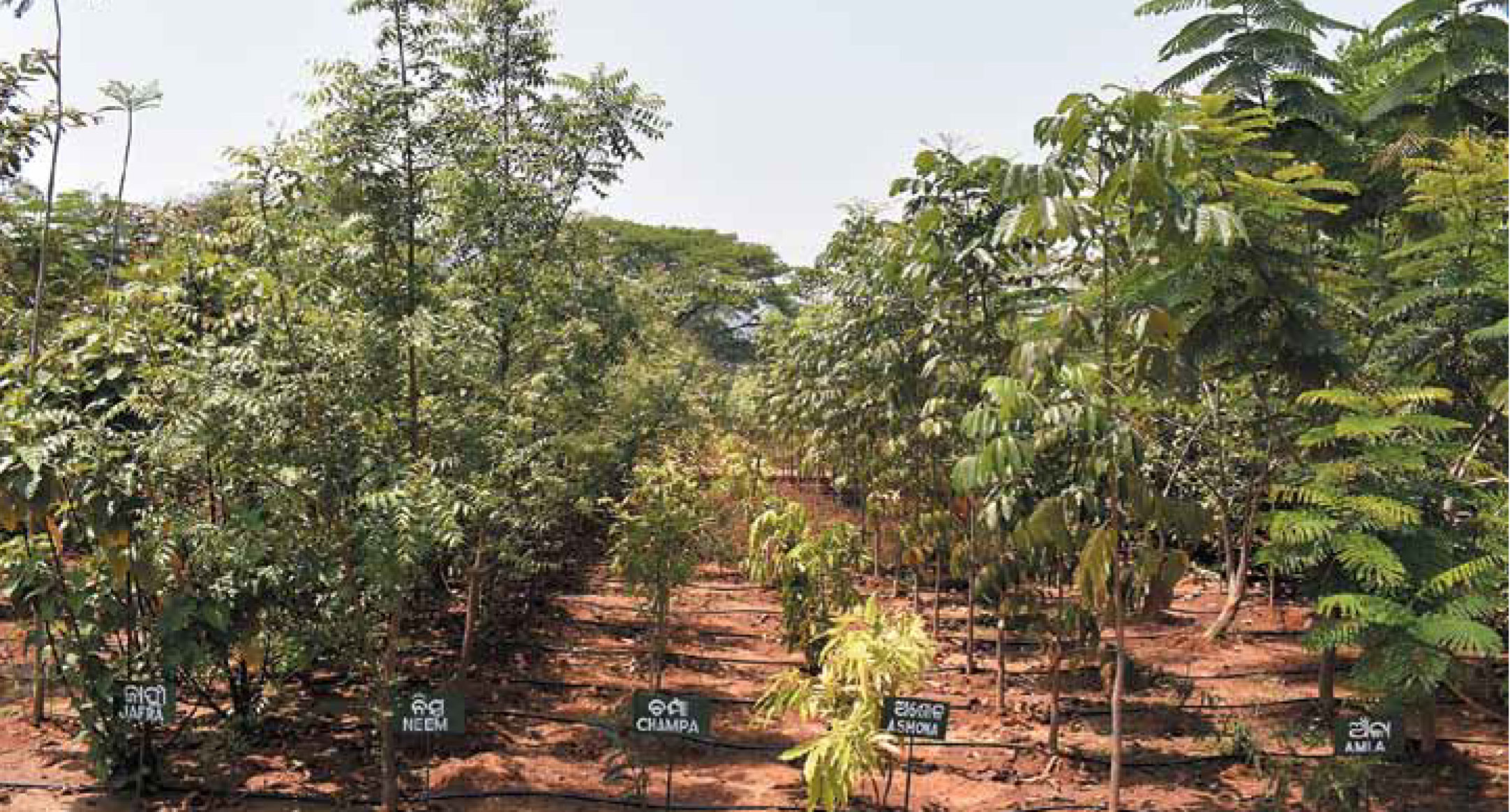
Urban Farming
By Mahima Choudhary
Sharing the story from one of the urban slums in Bhopal of Madhya Pradesh, called Jatkhedi, the people here are working in unorganized sector.Women often work as domestic workers run small businesses of jewellery and tailoring units and engage in day-to-day activities. The first lockdown affected them in a very unpleasant way.Their work life stopped and they were forced to stay at home, left with almost nothing to eat. Some organizations came and extended minimal support which was not enough to meet their daily needs.This was their story of lockdown that happened in the year 2020.
We have seen that the prices of food items including vegetables have hiked a lot while the purchasing power remained constant, which makes it difficult for a common man to buy vegetables everyday. We built the capacity of the community in urban farming in urban slums from making of manure to which seed they should sow in which season including the making of a disinfectant called ‘amritpaani’, in the presence of 25+ participants including youth, women and children, The members of the community prepared a compost pit. Materials such as dry leaves, fresh leaves, cow dung, cow urine, brick powder, soil and all the essentials needed were arranged by them.
After the manure was prepared, they planted seeds and the results were quite fruitful. During the second lockdown, the community was least effected because the model was started already and they were getting vegetables from the garden, which they shared amongst each other.
The model that has formed is climate resilient and eco-friendly. No outside manure and products have been used in this model apart from the seeds, which we procured from outside, but this was the first and last time when the seeds were procured because we have taught them seed conservation, and how they can multiply the yield.
There is a very close relationship between women and climate change. They are the ones who are most vulnerable. Anything that happens be it water scarcity, flood, corona or any other disaster, negatively affects women because they spend more than half of their time of the day in fetching water in the rural and urban slums. In the times of disaster, everyone was engaged in providing the food relief. But what about the menstrual and other needs of women? Nobody talks about that and considers that as a topic which need not be addressed.
During the times of Covid, the women were overwhelmed with the household chores. They hardly had time for anything else. It becomes pretty clear why the representation of women is less in politics and other socio-economic activities.

They are engaged in fulfilling other things which they consider their whole and sole responsibility. On the day of compost making also, there was only one male candidate who was present. But it was a huge win because that one person participated with full energy and enthusiasm and also motivated the other male members of the community.
Here in the community, the women are self-motivated and have divided the responsibility in the urban farming scenario, from the seed sowing to water and distribution of the products in the community. When the vegetables were ready, there were no conflicts regarding distribution.They were distributed equally within the community because it was the result of the hard work of each and every community member.
The urban slum where we practised this model, Jatkhedi, has serious water issues. No active public water sources are available.The existing ones are defunct. They hardly met their daily water needs. How could the plants get water in such conditions? Drip technique can be used by reusing the water bottles and placing them near every plant. This reduces the effort, time and water consumption.
This shows the power of collective action. How the members of all age groups came together to support a cause and the results were beyond imagination. In the modern cities where we are losing the sense of being together and the essence of our social relationships, this is a perfect example that showcase that our little efforts can bring a big change. The children of the community prepared the pit. Women and youth collected the materials needed and spread the word in the community, and yes “ghar bade nahi dil bada hona chhhaiye.”




